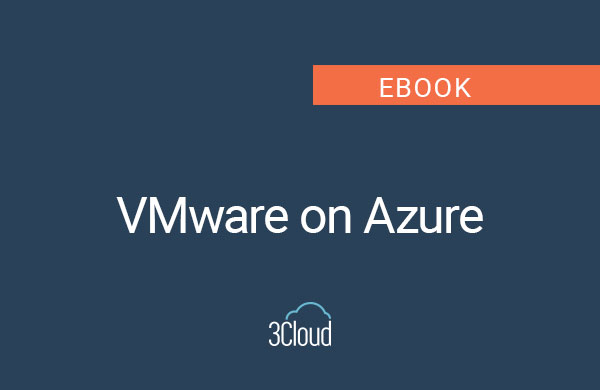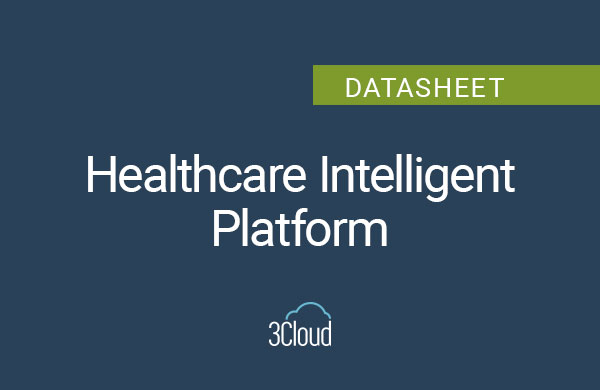A Cloud Platform is a secure and manageable infrastructure on which to build your applications and capture data intelligence. This approach provides the benefits of scale, speed, and agility while still protecting existing investments. This means IT can now rapidly build and deploy applications, flexibly manage IT services, and support real-time analytics across all forms of data.
Cloud Platforms vs Cloud Computing
Cloud computing is a broad concept that encompasses the delivery of various services over the internet, including data storage, servers, databases, networking, and software. It’s akin to the engine in a car, providing the power and infrastructure. Cloud platforms, on the other hand, are more like the sophisticated dashboard, offering developers and businesses the tools and services to build, deploy, and manage applications in the cloud environment. They offer a more tailored experience, allowing users to create bespoke solutions that meet specific needs. While cloud computing provides the raw computational power and fundamental services, cloud platforms offer the framework and environment where businesses can innovate and scale efficiently.
While Cloud Platforms provide the infrastructure and tools developers need to build and host web applications, Cloud Computing is simply the delivery of computing services over the internet. Cloud Computing allows access to best-of-breed IT solutions without having to manage a large infrastructure.
Cloud Computing services include IaaS, PaaS and SaaS.
- Infrastructure as a Service (IaaS) replaces physical and virtual on-premises infrastructure with hardware residing in a public or private cloud while allowing users to remain in control over the environment. The true benefit of IaaS is the elimination of hardware costs and maintenance headaches. IaaS allows you to operate on virtual machines instead of physical ones.
- Platform as a Service (PaaS) provides a fully managed platform that includes hardware, operating system and software ready for consumption. This model advances cloud computing. It packages all the components needed to offer a specific platform in a managed environment. This makes it easier to use and manage. The greatest benefit to PaaS is time-to-market. PaaS models allow an organization to collaborate, scale and deploy their own software at a much greater rate.
- Software as a Service (SaaS) is used by vendors to provide users with applications and packaged software on a subscription basis from any internet-connected device. SaaS is commonly referred to as “on-demand” and removes any concerns about installation, coding, or up-keep of data management.
How Cloud Platforms Work
Understanding how a cloud platform functions begins with an awareness of the three types of clouds. This is where 3Cloud gets its name.
- Public Cloud: Public cloud platforms are third-party providers such as Microsoft Azure that deliver computing resources over the Internet.
- Private Cloud: A private cloud platform is exclusive to a single organization, usually in an on-site data center or hosted by a third-party service provider.
- Hybrid Cloud: In this combination of public and private cloud platforms, data and applications move seamlessly between the two, giving the organization greater flexibility and helping to optimize infrastructure, security, and compliance.
A cloud platform helps you bring new solutions to life. You can build, run, and manage applications across multiple clouds, on-premises, and at the edge, with the tools and frameworks of your choice. Cloud platforms operate by offering a suite of services and tools hosted on remote servers, which are accessed over the internet.
These platforms provide a range of services, from data storage and server access to advanced computing capabilities and AI-driven tools. Users can select the services they need, scale resources up or down as demand changes, and only pay for what they use. This flexibility allows for efficient management of resources, enabling businesses to focus on innovation and growth, rather than on the technicalities of hardware and software maintenance.
Cloud Platform Benefits
From startups to large corporations, the adoption of cloud platforms is driven by their ability to transform traditional operational models, offering benefits in terms of scalability, cost-effectiveness, and flexibility. Whether it’s enhancing collaboration, ensuring robust data security, or enabling seamless remote work, cloud platforms are redefining business technology. We can appreciate why cloud platforms are not just a technological choice, but a strategic business decision.
- Scalablity: A cloud platform lets you optimize IT costs and efficiencies. You will eliminate upfront capital costs associated with on-premises infrastructure by using a consumption-based model. You can also increase scalability and performance as your footprint grows.
- Flexibility: A cloud platform lets you gain resources that are rapidly accessible and aligned to your business needs. It also allows for integrated hardware and software and provides a single management platform for multiple clouds. You can innovate anywhere, including on-premises, multi-cloud, and edge environments.
- Security: A cloud platform ensures uptime and business continuity by delivering unparalleled security and compliance and reliability at scale.
- Cost-Effectiveness: They operate on a pay-as-you-go model, which means businesses only pay for the resources they use.
- Enhanced Collaboration: Cloud platforms facilitate better collaboration by allowing multiple users to access, edit, and share documents and applications simultaneously, in a secure online environment.
- Disaster Recovery and Data Loss Prevention: By storing data in the cloud, businesses ensure it’s backed up and protected in a secure and safe location. This makes recovery processes more manageable, quicker, and less expensive compared to traditional methods.
- Automatic Updates: Cloud providers handle the maintenance and updates, ensuring businesses have access to the latest technology without additional workload or cost.
- Security: Cloud platforms offer robust security features, protecting data and applications from potential breaches. This is backed by the expertise and resources of the cloud service provider.
- Customization and Integration: Cloud platforms offer a range of customizable options and can integrate with various other tools and services, allowing businesses to tailor solutions.
- Environmental Impact: Cloud platforms can reduce the carbon footprint of businesses, contributing to more sustainable operational practices.
Migrating Applications to a Cloud Platform
Migrating applications to a cloud platform represents a strategic move towards operational agility and efficiency. This transition not only streamlines infrastructure management but also opens up new avenues for innovation and collaboration, fundamentally transforming how applications are developed, deployed, and maintained.
When assessing application suitability for migration, begin by analyzing your entire portfolio. Decide which parts of your business would benefit most from cloud services and migrate those first. Take into account any highly-customized or integrated application profiles when considering migration costs, since costs can vary widely for these items.
You can migrate applications, databases, storage, and VMWare to a cloud platform. You may want to consider a Managed Platform service to help your organization successfully manage and execute large migration projects brought about by mergers and acquisitions, on-prem to cloud, or data modernization efforts.
Security and Compliance on Cloud Platforms
Cloud Platforms offer many native security features focusing on operations, applications, storage, networking, computing, and identity. Even though you have access to these built-in capabilities, there are steps you can take to ensure that your enterprise-grade cloud workload is protected from breaches, data leaks, and targeted attacks.
Ensure your data is protected in the cloud. Secure it in every possible state it can occur. Consider what controls are available for that specific state.
Here are 3 ways to ensure data security across your cloud platform.
- Policy-Based Granular Management is critical to securing your cloud environment. Create groups and roles instead of managing permissions for each individual. This will ensure that only the necessary access is granted to each unit, rather than giving blanket permissions.
- Azure Virtual Network (VNet) enables you to deploy business-critical resources and apps in logically isolated sections of Azure. VNet allows your various Azure resources to safely connect with each other, the internet, and any on-premises networks with the added advantages of Azure’s infrastructure including scale and availability.
- Data Encryption lets you protect your data by encrypting it at all its various levels of usage, with several different methods of encryption available including server-side encryption that relies on service-managed keys, customer-managed keys in Key Vault, or customer-managed keys on customer-controlled hardware.
When your industry requires a discrete set of compliance regulations, rest assured that you can achieve real-time regulatory cloud compliance at scale with consistent resource governance. You can also reduce the time needed to audit your environments by having all your compliance data in a single place. Setting guardrails throughout your cloud architecture and resources to helps ensure alignment and compliance with regulatory frameworks such as NIST, ISO, HIPAA, PCI, and others.
Scaling and Performance on Cloud Platforms
Scaling and performance are among the most compelling features of cloud platforms. In a cloud environment, scaling resources to meet fluctuating demand becomes a seamless process, devoid of the traditional constraints of physical infrastructure. Whether it’s handling sudden spikes in web traffic or managing large-scale data processing, cloud platforms can dynamically allocate resources, ensuring optimal performance without the overhead of maintaining excess capacity. This elasticity not only ensures that applications run smoothly during peak loads but also contributes to cost efficiency, as businesses pay only for the resources they use. Moreover, the advanced performance metrics and analytics provided by cloud platforms enable organizations to monitor and fine-tune their operations, ensuring continuous optimization and a superior user experience.
One of the most important aspects of performance efficiency in cloud platform is the ability to scale your applications. To achieve scalability, consider how your application scales, and implement platform as a service (PaaS) offerings that have built-in scaling operations, such as autoscaling with monitoring systems at the application, service, and infrastructure levels.
- Autoscaling lets you automatically run the right amount of resources to handle your app load.
- Autoscaling adds resources, or scales out, to handle increases in load such as seasonal workloads.
- Autoscaling also removes idle resources, or scales in, to save money during decreases in load, such as nights and weekends for some corporate apps.
4 Reasons to Autoscale Your Cloud Platform
Cost Structure and Optimization on Cloud Platforms
Meet your organization’s business needs and budget with competitive, pay-as-you-go pricing. Realize cost savings whether you’re migrating your first workload or fine-tuning complex deployments. With no upfront costs, you only pay for what you use.
Optimize your time to value by reducing costs with the most complete tech stack from cloud to edge. Build, monitor, and manage your critical infrastructure using cloud technology. Optimization on cloud platforms is a critical aspect that drives efficiency, cost savings, and enhanced performance. These platforms are designed with advanced tools and services that enable businesses to fine-tune their operations, ensuring that resources are used in the most effective manner.
Through features like auto-scaling, load balancing, and intelligent resource allocation, cloud platforms can dynamically adjust to the changing needs of an application, avoiding under or over-utilization of resources. Additionally, they offer detailed analytics and monitoring capabilities, providing insights into application performance and user behavior. This data is invaluable for making informed decisions about resource allocation, architectural improvements, and cost management. By continuously optimizing cloud resources, your business can achieve a balance between performance, cost, and scalability, leading to a more streamlined and efficient operation.
You’ll achieve greater speed, higher productivity and have more time to focus on what matters, your business. Maximize the value of your investments with cloud technology that does more.
Get Started
3Cloud specializes in Microsoft Azure, providing a depth of expertise that’s invaluable for businesses looking to optimize their cloud operations on this platform. Our team of certified professionals has a deep understanding of Azure’s capabilities and best practices, ensuring that clients get the most out of their cloud investment.
Talk to a 3Cloud representative today and learn how to turn your ideas into innovation with Azure, the most comprehensive cloud platform. Achieve your goals with the freedom and flexibility to build, manage, and deploy your applications anywhere. Use your preferred languages, frameworks, and infrastructure — even your own datacenter and other clouds — to solve challenges large and small, and build your next great solution. Contact us to learn more.
Partnering with 3Cloud for cloud platform optimization means gaining access to specialized expertise, tailored solutions, comprehensive services, and a commitment to security, performance, and strategic growth.




